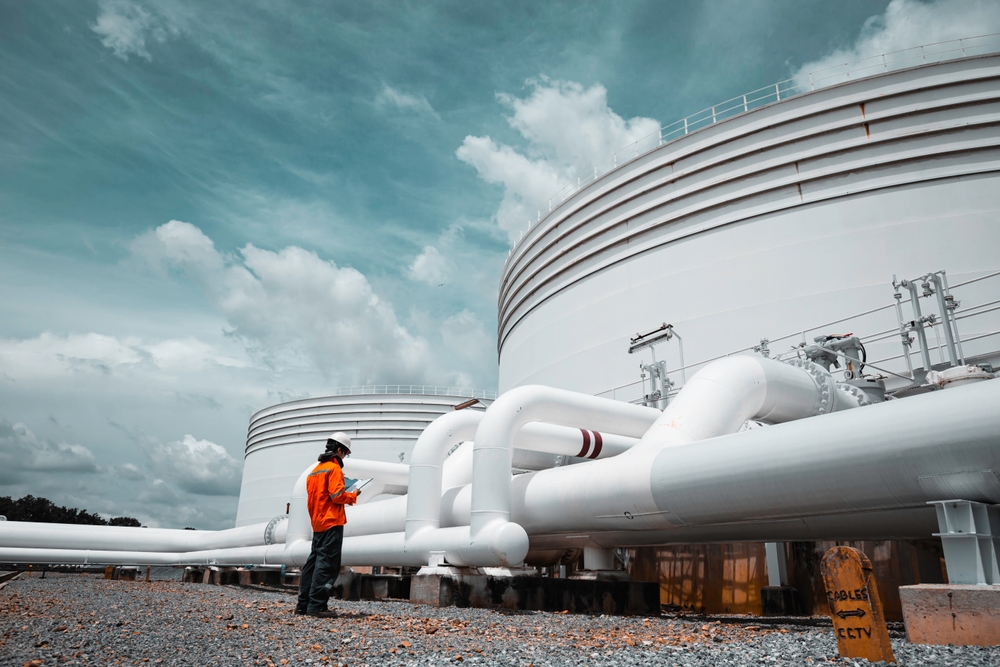Introduction:
The objective of the LNG Financing and Commercial Management Training Course is to improve the skills of the participants in the LNG industry and keep them abreast of the developments taking place in the industry. Participants will penetrate the complexity of the LNG business and its cycles. As more attention is placed on the use of alternative energy, comprehensive comprehension of the LNG market brings parallel associated implications for both social and economic advancement.
This training course reviews liquefied natural gas (LNG) as a business activity in-depth and takes managers and professionals through the dynamics of the LNG sector, arming them with ideas to remain relevant in the industry. It underlines making use of liquefied natural gas (LNG) to satisfy energy needs in the 21st century, including addressing its usage as a clean energy source and its implications on climate and environment.
Objectives:
By the end of this LNG financing and commercial management training course, participants will be able to:
- Apprehend restructuring of the entire LNG value chain.
- Appreciate processes of LNG production, storage, transportation, and their distribution.
- Evaluate pricing of LNG and the pricing matrix for exports.
- Understand the various sales promotion and marketing clauses and conditions.
- Explain the clauses contained in LPG sales and purchase agreements.
- Investigate the economic indicators and analyze the returns on investment.
Training Methodology:
- Group discussion
- Simulation
- Industry guest speakers
- Field visits
- Assessments and quizzes
Course Outline:
Unit 1: Setting the Introductory LNG Scene in the Energy Industry:
- What is LNG and Its Significance
- Finding and Market Development, Shipping, and Import of LNG
- Cost and Value Drivers: Expectations of Shareholder
- The Value Chain Atlas: From Well Head, Producers to Burner Tip
- Players: Governments, NOCs, IOCs, and Banks, Insurers
- Natural Gas Value Chain
- E&P
- Processing and Production
- Transmission of Sales Gas
- Storage Underground
- Distribution
- Gas Sales and Product Speculations
- Gas Production
- Where and Who are the Producers of LNG
- Projects Present in Early Phase of Business
- Where and Who are the Users of LNG
- Projects Present in Early Phase of Business
- Gas Conditioning Processes: Water Washing, Contamination Removal, NGL Recovery
Unit 2: Essential Logistics of LNG:
- Processes for the Rejection of Nitrogen
- Cryogenic Process
- Absorption Process (Lean Oil/Solvent as Absorbent)
- Membrane Separation
- Adsorption Process (Activated Carbon)
- Systems for the Storage of LNG
- LNG Transportation with Pricing Techniques
- Vapor Recovery Systems Lact Unit
- Sample Collection
- Transportation of Natural Gas
- Components Pipelines
- Compressed Air System RAUCH Compressed Air Headquarters
- Distribution and Planning
- Metering Equipment and Valves
- Junction Design
- Execution
- Measurement
- LNG Cross-Ceiling Processes
- LNG Compressors and Transport (USA, Japan)
Unit 3: Pricing Systems for LNG Exports, Marketing, and Project Risks:
- Export | Import | LNG | Liquefied Natural Gas
- Price Activity Differences Across Regions
- Global Pricing Structure for LNG
- Pricing of Domestic Natural Gas
- Basin Differential Pricing
- Critical Pricing Strategies for LNG Exports in the Future
- Oil Prices Based Pricing for LNG
- Commercial Sector
- Natural Gas Plants and Economics
- LNG as Fuel: Land Transport and Ship/Ferry Applications
- Risk and Value of the Project Definition
- Commercial Policies for Project Success
- Reserve Categories in Oil/Gas
- Construction and Schedule Delays – Cost Overrun Risks
- Link with Oil and Gas Price Costs
- Gas Plant Asset Value Optimization
- Profitability and Feasibility Study
- ROI Analysis
- Project Value Criteria
- Portfolio Management
- Integrated Gas Plant Performance Strategy
Unit 4: LNG Project Financing and Project Management:
- Gas Plant Projects Management
- General Overview of Project Management
- Project Management Process Phases
- Quality Control Systems
- Commissioning and Start-Up
- Settlement of Earnings Disputes
- Commercial and Non-Typical Commercial Forms
- LNG Project Financing Structures
- Investment Decision Process
- Important Value Elements in LNG Financing
- LNG Financing Options and Balance
- ECA and Multilateral Institution Funding
- Capital Markets and Financing Against Assets
Unit 5: LNG Agreements, Regulations, and Future Trends:
- LNG Contracts
- Chief Guides of the Contractual Framework
- Stakeholder and Key Drivers Analysis
- LNG Supply Purchase Agreement (SPA)
- EPC Contracts
- LNG Shipping Agreements
- Legislative and Institutional Frameworks
- LNG Market Developments
- Impact of Shale Gas on LNG Dynamics
- Future Natural Gas Trends
- Mid-Scale and Small-Scale LNG
- Floating LNG Business
Unit 6: Upstream Fiscal & License Agreements:
- Joint Venture Agreements Upstream
- LNG Project Structures
- Gas Sales to LNG Plant
Unit 7: Key LNG Sales Agreements:
- LNG Sales Contracts and Price Clauses
- Key LNG Transportation Agreements
- LNG Transportation Flexibility and Value Creation
Unit 8: Key LNG Regasification Agreements, Management, and Operations:
- Advances in LNG Import Terminals
- LNG Regasification Agreements
- Access to LNG and Gas Transmission Networks
- Regasification Terminal Commercial, Technical, and Project Risk Assessment
- Effective Risk Management
Unit 9: Financing LNG Projects:
- Major Trends in LNG Project Finance
- LNG Financing Overview
Conclusion:
If strategically focusing on key terms such as LNG management, LNG training, LNG finance, LNG commercial manager, and risk management, participants will be well-equipped to navigate the rapidly evolving LNG landscape. This course prepares professionals to function effectively in this dynamic industry, with an emphasis on knowledge application and strategic decision-making.

.jpg)

.jpg)

.jpg)
.jpg)














